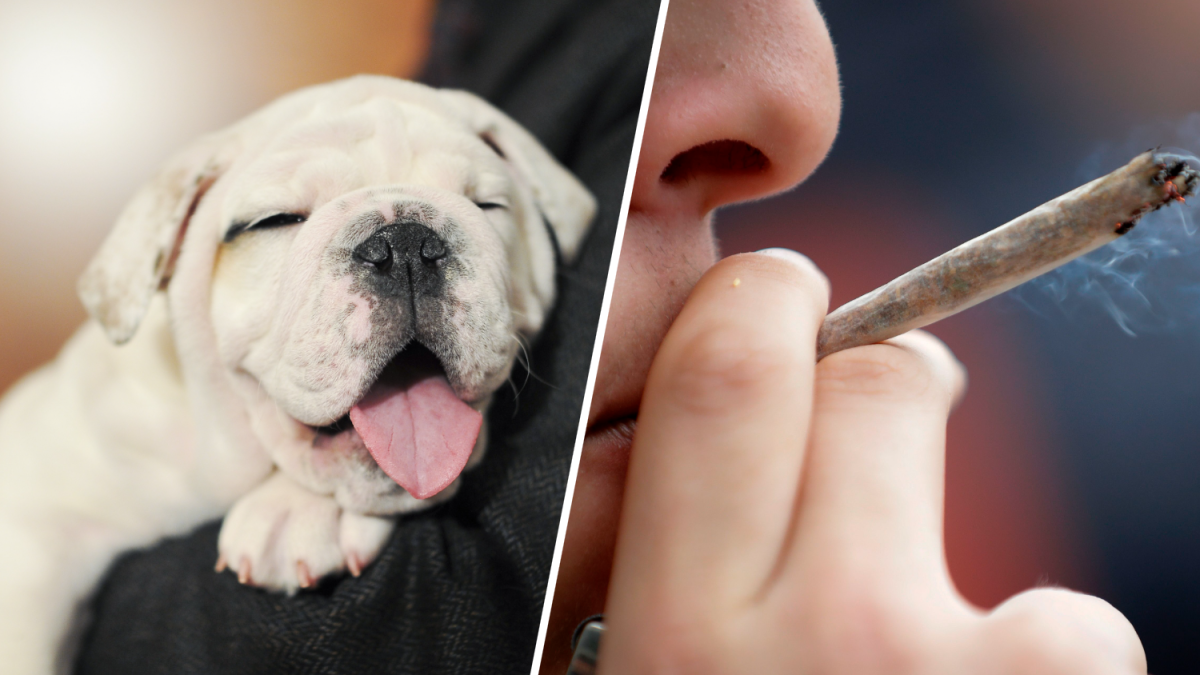NEW YORK — Bondi, an 8-month-old puppy, had just returned from a walk when she started tripping. His head wobbled and he was soon barely able to stand, so his owner, Colleen Briggs, took him to the vet.
The good doctor quickly made a diagnosis: Bondi was on drugs.
During his walk, a nose must have led Bondi to a discarded joint, which he ate.
“I was doing the usual thing: exploring everything, smelling everything,” said Briggs, who began noticing the pot shops popping up in New York City, the frequent puffs of marijuana as he walked around his neighborhood. of Manhattan and unfinished joints. he took. Now they litter the sidewalks.
In places like New York, where the first legal recreational marijuana dispensary opened last year, users can smoke it outdoors. As a result, more and more dogs are finding and eating discarded joints and food, worrying veterinarians and pet owners who attribute the sharp rise in poisonings to smokers who are unaware of the damage they can cause by discarding. rubbish.
Marijuana poisonings, which are rarely fatal, were once uncommon in pets, even when medical dispensaries began to open, according to New York veterinarian Dr. Amy Attas. Until recently, many happened in the home, when pets entered their owners’ hideouts.
“The reason we see so many cases is because people are using marijuana on the street and then throwing the unwanted ends off their joints,” Attas said. “And that’s a real problem because dogs will eat them.”
In the first three months of the year, it had already seen six cases, roughly the same number it has treated in the past three decades. Multiply that by the number of vets working in New York, he said, and the result underscores the growing problem.
The American Society for the Prevention of Cruelty to Animals said cases were increasing across the country. Last year there was an 11% increase from the approximately 6,200 cases reported in 2021, and over the past five years there has been a 300% increase.
“It’s amazing to me how widespread it is now,” Attas said.
Twenty-one states have legalized the recreational use of cannabis, and in major urban areas like New York, you can’t escape the smell of marijuana in public.
In many cases, owners don’t know their dogs have eaten a leftover joint until they start showing signs of toxicity. Even then, owners may not understand what is making their pets sick.
Sue Scott panicked when her 9-month-old fawn pug, Circe, collapsed after a recent walk. Circe’s legs were splayed on the ground, her head bobbing from side to side and drooling.
“A million things were going through my head,” Scott, 68, said. Marijuana poisoning was not one of them. “I never would have thought of that,” he said.
Scott made a video call to Dr Attas, who said Circe was showing all the signs of a high. Now she holds Circe on a shorter leash, aware of where she puts her nose.
“I don’t know if you know pugs, they’re constantly looking for their next bite,” said Scott, who has owned four other pugs, none of whom came home stoned. “But sometimes it is quite difficult to control them because they are very fast. They’ll just jump on something.”
Although dogs rarely die from marijuana poisoning, treatment can be expensive and sometimes requires a trip to the animal emergency room, a gastric pump, and intravenous fluids.
The stress for the patient and its owner is also enormous.
Bondi has been poisoned three times, the first time last fall, her owner, Briggs, said.
Although Briggs became more attentive while walking her pup, she admitted she must have been distracted when Bondi fell ill a second time. At that point, he let Bondi overcome his euphoria.
“Taking him out…it’s a really intense situation. So I always look at the ground, and now it’s everywhere,” she said of the worn seals she and Bondi find on walks.
“Once,” Briggs said, “I grabbed it and pulled it out of his mouth.”

